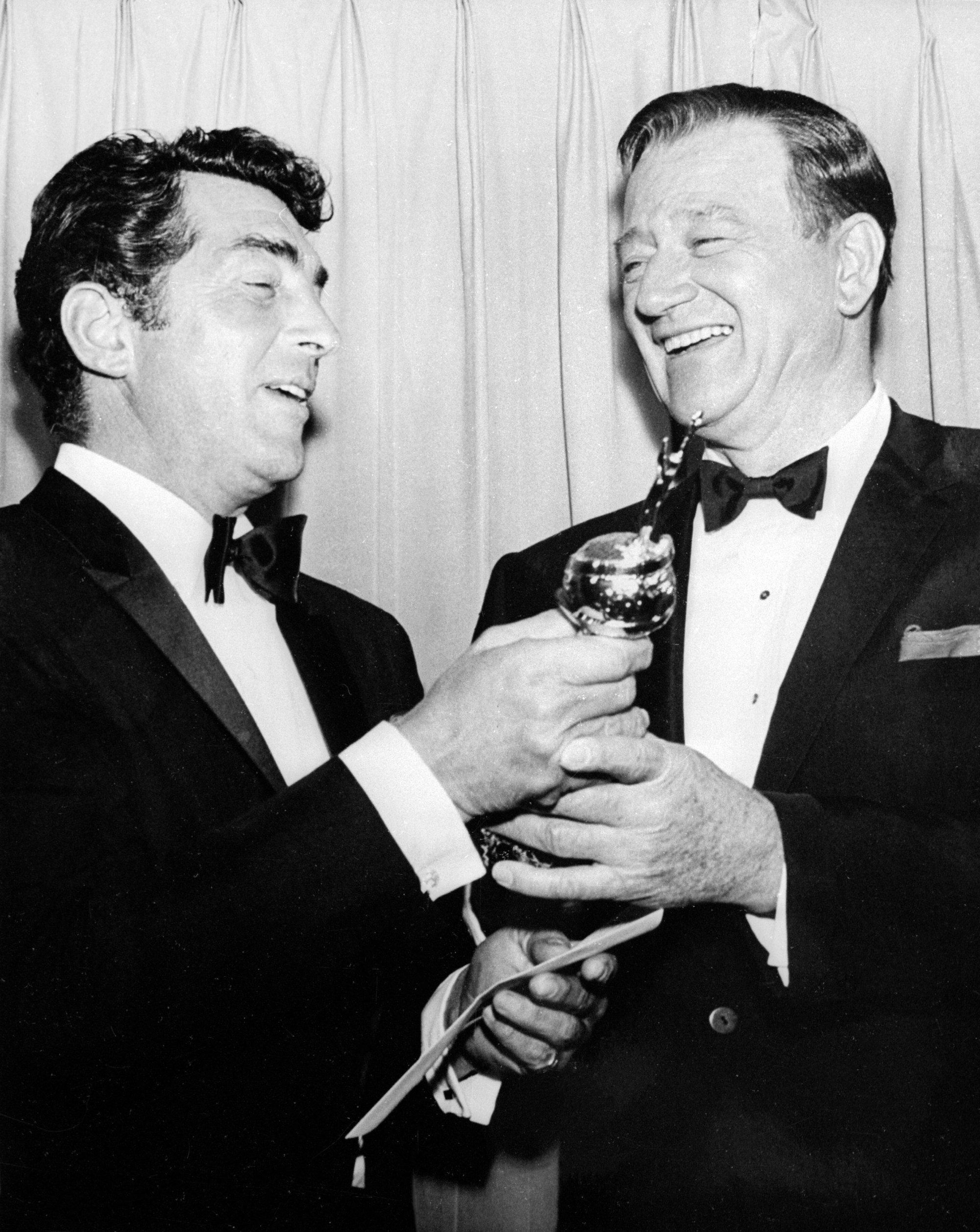
- Cecil B. DeMille
Ready for My deMille: Profiles in Excellence – John Wayne, 1966
Beginning in 1952 when the Cecil B. deMille Award was presented to its namesake visionary director, the Hollywood Foreign Press Association has awarded its most prestigious prize 66 times. From Walt Disney to Bette Davis, Elizabeth Taylor to Steven Spielberg and 62 others, the deMille has gone to luminaries – actors, directors, producers – who have left an indelible mark on Hollywood. Sometimes mistaken with a career achievement award, per HFPA statute, the deMille is more precisely bestowed for “outstanding contributions to the world of entertainment”. In this series, HFPA cognoscente and former president Philip Berk profiles deMille laureates through the years.
Republic Pictures nurtured countless cowboy stars in the 1930s but only one became an icon. John Wayne, the most battered superstar of all time. He had more ups and downs than any other actor, but each time he got back up and started all over again.
The Hollywood Foreign Press was the first to recognize his potential awarding him our Cecil B. deMille as early as 1966, some 30 years before he reprised his greatest role, Rooster Cogburn, for which he had won both Golden Globe and the Oscar for Best Actor in True Grit.
Fresh out of college in 1930, he was given the lead in Raoul Walsh’s The Big Trail, but when that film crashed, he was relegated to B movie westerns first at Columbia, then Monogram, and finally at Republic, where he found a home.
Ten years later John Ford, having watched him grow and recognizing his potential, gave him the lead in a film the major studios refused to finance because Ford insisted on Wayne playing Johnny Reno. The film was the classic western Stagecoach which became a box office hit and established Wayne as a star.
But Wayne was still under contract to Republic and obligated to make boilerplate westerns like Wyoming Outlaw, and Three Texas Steers.
Finally released from his exclusive contract with the studio, he signed with Universal to play opposite Marlene Dietrich in two movies: Seven Sinners and The Spoilers. Then Paramount signed him for two major roles, in Henry Hathaway’s The Shepherd of the Hills and more importantly a pivotal role in deMille’s Reap the Wild Wind, one of the year’s box office hits.
As one of the few actors not serving in World War II, suddenly he was in demand. He made Pittsburgh for Universal, Reunion in France for MGM, Lady Takes a Chance, Tall in the Saddle, and Back to Bataan for RKO. But he didn’t turn his back on Republic. In fact, he remained loyal to studio owner Herbert B. Yates all his life. Returning to the studio that nurtured him he made a half dozen cheapies including Flame of Barbary Coast which starred Yates’ wife Vera Rhuba Ralston, a championship skater but not much of a screen presence. That was always Wayne’s credo: accept your lot and move on.
Despite Ford’s belief in him (he gave him the leads in two of his classic movies, The Long Voyage Home and They Were Expendable) it was a Republic movie that made him a superstar and earned him his first Academy Award nomination. True, before that he had starred in a number of John Ford westerns, Fort Apache, 3 Godfathers, and She Wore a Yellow Ribbon as well as Howard Hawks classic Red River. but Republic’s Sands of Iwo Jima was his watershed role,
From then on he could command any role he wanted and in fact turned down quite a few including Gregory Peck’s The Gunfighter (retribution to Harry Cohn who had disrespected him when he made those Columbia westerns), All the King’s Men, High Noon, 1942, and Dr. Strangelove, all because of his right-wing politics.
The classic roles he chose were in John Ford’s The Quiet Man, made for Republic Pictures, The High and the Mighty, made for his production company Batjac, Ford’s The Searchers, one of the greatest westerns of all time, Rio Bravo, an inspiration for George Lucas’s Star Wars:The Empire Strikes Back, both, Rio Bravo and Empire, written by Leigh Brackett -, The Alamo, which he directed, The Man Who Shot Liberty Valance, and True Grit, essentially his swansong. He made movies after that, some while he was riddled with cancer, but his career after that was essentially over.
How many classics can we list in his resumé? For sure Red River and The Searchers and maybe The Quiet Man. Despite injecting himself into partisan politics all his life — he was a staunch conservative who supported both the Vietnam War and the House Un-American Activities Committee — he was awarded the Congressional Medal of Honor by liberal Democratic President Jimmy Carter.
Wayne was married three times, all three wives of Hispanic ethnicity, and had seven children. To this day, he projects a dynamic presence on screen.

